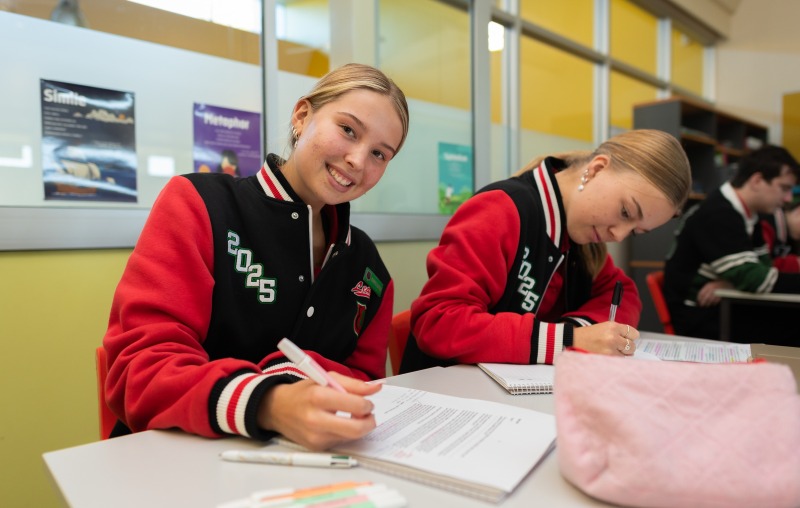Pathways to Future Careers
Congratulations, you’re approaching an exciting part of your learning journey at high school. It’s a few short years until graduation and there is no better time than today to start planning for what comes next. Here you can learn about the different pathways available to you at ESHS and what doors they’ll open for you.
Understanding Core Terms
The Western Australian Certificate of Education (WACE) is your official senior school certificate that’s recognised right across Australia. This certificate shows you’ve met all the important requirements and is your ticket to an even wider selection of careers, training, and tertiary education opportunities after high school.
To achieve your WACE there are some requirements we assist every student with meeting.
Requirement Overview:
- complete a minimum of 20 units, or equivalent
- complete one of 3 course combination options:
- at least 4 Year 12 ATAR courses
- at least 5 Year 12 General courses (or a combination of General and up to 3 Year 12 ATAR courses) or equivalent
- complete a Certificate Il (or higher) VET qualification in combination with ATAR, General or Foundation courses.
- a minimum standard of literacy and a minimum standard of numeracy
- meet the requirements for breadth and depth of study
- meet the achievement standard of at least 14 C grades or higher in Years 11 and 12, including at least 6 C grades (or equivalent) in Year 12.
Literacy & Numeracy Requirements:
- prequalifying through the reading, writing and numeracy tests of the Year 9 National Assessment Program – Literacy and Numeracy (NAPLAN)
- successfully completing the Online Literacy and Numeracy Assessments (OLNA)
https://senior-secondary.scsa.wa.edu.au/assessment/olna/prequalification-through-naplan
Unit Requirements:
- a minimum of 10 Year 12 units, or the equivalent (including endorsed programs and/or VET)
- 4 units from an English learning area course, post Year 10, including at least one pair of Year 12 units from an English learning area course
- one pair of Year 12 units from List A (arts, languages, social sciences)
- one pair of Year 12 units from List B (mathematics, science, technology).
Achievement Requirements:
Students must achieve at least 14 C grades or equivalents in Year 11 and Year 12 units, including at least 6 C grades or equivalents in Year 12 units.
A student’s Australian Tertiary Admissions Rank (ATAR) is calculated using their course and examination results.
A minimum of 4 ATAR courses is required. For most students, the academic nature and challenge of ATAR courses provides the best preparation for success at university.
There are a wide variety of entrance pathways to University available to students. The most common of which for high school students is a direct application.
Detailed information on how to apply is kept up-to-date and available on the Tertiary Institutions Service Centre (TISC) website. https://tisc.edu.au/static/guide/download.tisc
Degree Requirements
Entrance requirements vary dependant on the university, and the course itself that you’re interested in this includes minimum ATAR scores or prerequisite high school subjects. We recommend visiting the website of your preferred university for specific information.
Don’t Know Where to Start?
Why not book a meeting with our school Career Practitioner? Learn all about the support on offer on our Career Launch Pad page.
Vocational Education and Training (VET) through Registered Training Organisations (RTOs) and TAFE WA offers students practical, industry-focused education that can begin during high school and continue post-graduation.
While in high school, students can complete VET qualifications as part of their WACE, gaining nationally recognised certificates in areas such as business, hospitality, automotive, health services, construction, and information technology. These qualifications provide direct pathways into employment or can contribute towards university entry through portfolio pathways. Post-schooling, TAFE WA and other RTOs offer an extensive range of certificate, diploma, and advanced diploma courses that lead directly to careers or provide alternative university entry routes.
Many TAFE programs include work placements and industry partnerships, ensuring graduates are job-ready with current skills that employers value.
Selecting the Right Pathway for You
So you’ve got a career or future endeavour in mind, but not sure which pathway is the best one to help you achieve your goal? We’ve got a handy Pathways Guide to help you out!
Our Pathways Guide is designed to show you the most common pathways through high school into tertiary education or employment in a simple-to-understand way. Keep in mind these pathways aren’t all-encompassing and don’t include every options available, to learn more about other options talk to our Career Practitioner or Deputy.
Year 10 Courses
OVERVIEW
The Year 10 English course builds on Year 9 content, offering two pathways to cater to different student needs. Pathway 1 focuses on developing analytical skills, reviewing short answer and essay writing forms, and experimenting with language and structural features in creative compositions. It includes end-of-semester examinations. Pathway 2 is designed to support students’ literacy needs, with a focus on OLNA preparedness and exploring engaging text types that encourage students to think about the world and their place in it. This pathway does not include end-of-semester examinations.
LEARNING OUTCOMES
1. Explore texts dealing with human experiences, interpersonal relationships, and ethical and global dilemmas from various perspectives.
2. Explain how literary concepts such as voice, perspective, and representation operate within complex, challenging texts, including media texts.
3. Emulate the style of other authors before developing their own as creative writers.
4. Read and view a range of familiar and challenging texts fluently, comprehending common themes, issues, and representations.
5. Identify and analyse values within texts, explaining how these are influenced by purposes and audiences.
6. Create a range of texts, including multimodal presentations, which influence a course of action (e.g., pitch an idea for an anti-hero movie).
OVERVIEW
In Year 10, students focus on issues affecting the wider community and transfer learned specialised movement skills with increasing proficiency across various contexts. They study external influences on health decisions and evaluate their impact on personal identity and the health of the broader community. Students use feedback to improve their own and others’ performance with greater consistency, and critically evaluate movement responses based on previous performances. They continue to develop and refine communication techniques to enhance interactions with others, and apply analytical skills to scrutinise health messages in a range of contexts.
LEARNING OUTCOMES
1. Understand the impact of societal and cultural influences on personal identity and health behaviour.
2. Understand external influences on sexuality and sexual health behaviours, including the impact decisions and actions have on their own and others’ health and wellbeing.
3. Develop skills and strategies to promote respectful relationships.
4. Improve movement skills and sequences within different physical activity contexts reflecting increased complexity and transference of learned skills to new activities.
5. Evaluate, select and implement responses to changing conditions based on the outcome of previous performances.
6. Analyse the impact of changes to effort, space and time on performance and quality of outcome.
OVERVIEW
In Year 10 Humanities and Social Sciences (HASS) students increase their independence in critical thinking and skills application which includes questioning, researching, analysing, evaluating, communicating and reflecting They investigate events, people and places that are both historical and contemporary.
LEARNING OUTCOMES
- Civics and Citizenship (Justice at home and overseas)
- Economics (Economic performance and living standards)
- Geography (Environmental change and management & Geographies of Wellbeing)
- History (The modern world and Australia)
OVERVIEW
Mathematics students at Esperance Senior High School learn how to use mathematics to solve problems, recognise patterns, represent and interpret data and perform calculations in real world scenarios. We aim to instil an appreciation of the elegance and power of mathematical reasoning, promote creative problem solving and to improve numerical fluency.
LEARNING OUTCOMES- Number & Algebra
- Measurement & Geometry
- Statistics & Probability
OVERVIEW
The Year 10 Science course explores systems at different scales, connecting microscopic and macroscopic properties to explain phenomena. Students examine biological, chemical, geological and physical evidence for theories including natural selection and Big Bang theory. The curriculum integrates Science Understanding, Science Inquiry Skills, and Science as Human Endeavour across biological, chemical, earth/space, and physical sciences. Students analyse the periodic table to predict element properties, explain chemical reactions and energy conservation within systems, and describe interactions within Earth’s spheres. The course emphasises evidence-based scientific thinking and develops skills in planning investigations, analysing data patterns, and communicating findings effectively.
LEARNING OUTCOMES
- Analyse the periodic table to predict element properties and explain how different types of chemical reactions are used to produce a range of products.
- Apply the relationship between force, mass and acceleration to predict changes in the motion of objects and explain energy conservation in simple systems.
- Describe and analyse interactions and cycles within and between Earth’s spheres, and explain how evidence for scientific theories such as natural selection and Big Bang theory can be used to support or refute models or predictions.
- Plan, select and use appropriate investigation types and methodologies to collect reliable data, assess risk and address ethical issues associated with these methods.
- Analyse patterns and trends in data, including describing relationships between variables, identifying sources of uncertainty and drawing conclusions that are consistent with evidence.
- Communicate scientific ideas and information for a particular purpose, including constructing evidence-based arguments and using appropriate scientific language, conventions and representations.
OVERVIEW
Students are introduced to the world of café food. Everyone likes to eat and prepare delicious food. Students will look at foods designed to serve with tea and coffee and light luncheon menus. Special dietary requirements are considered as students set up their café and make delicious foods appropriate for café service.
LEARNING OUTCOMES
- Identify the needs of the client/stakeholder to determine the basis for a solution.
- Select, justify, and safely implement and test appropriate technologies
and processes, to make solutions. - Work independently, and collaboratively, to manage projects, whilst considering time, cost, safety, and production processes.
- Analyse design processes and solutions against task criteria.
OVERVIEW
The second half of this Nationally Recognised Certificate is delivered in year 10 and is comprised of units in: Simple Ensemble Performance; Working with Others; Sound and Music Equipment Set-up and Pack-Up; and Creative Arts Industry Research.
It should be noted that many assessments require students to work as part of a team in situations easiest to complete in situations that occur outside of school hours, ie: Ensemble Performances.
LEARNING OUTCOMES
- CUAMPF213 – Play or sing music in ensembles.
- CUASTA211 – Contribute to bump-in and bump-out of shows.
- CUAIND211 – Develop Creative Arts Industry Knowledge.
- BSBTWK211 – Work effectively with others.
OVERVIEW
Everyone loves babies and wants to learn more about what they can do and how we can help them to grow and develop. The physical, social, emotional, intellectual and nutritional needs of children will be looked at in a practical and fun way. This course provides students with a variety of practical experiences and activities to be used with children while also learning of their needs.
LEARNING OUTCOMES
- Healthy eating through the skills and knowledge of nutrients. Principles of food safety, preparation, presentation and sensory perceptions.
- Investigate and evaluate the social, ethical, and environmental considerations that impact designs, and processes.
- Students combine a range of characteristics and properties of materials, systems, components, tools, technologies and equipment to create designed solutions.
- Identify the needs of the client to determine the basis for a solution, whilst creating and critiquing briefs to address criteria.
OVERVIEW
The year 10 Construction option provides opportunity for students to gain experience and basic understanding of elements of the construction industry, through the undertaking of a range of practical and theory-based tasks.
LEARNING OUTCOMES
- Knowledge and Understanding
- Processes and Production Skills
OVERVIEW
The year 10 Drama program builds on the knowledge and skills already well developed by the students previous study in Performing Arts.
Individually and collaboratively, students develop their confidence, empathy and self-awareness to explore, depict and celebrate human experience, take risks and extend their own creativity through Drama.
LEARNING OUTCOMES
- Students demonstrate their knowledge of how to analyse, apply and control the elements, skills, techniques, processes, conventions, forms and styles of drama.
- Students demonstrate their performance skills and abilities in traditional and contemporary drama to engage and create meaning for audiences.
- Students demonstrate their understanding of the role of group processes, different technologies available and in the creative process of devising and interpreting drama to make meaning for audiences.
- Students demonstrate their knowledge of traditional and contemporary drama through responding as critical and active participants and audience members.
OVERVIEW
Individually and collaboratively, students demonstrate confidence, curiosity, imagination and enjoyment when engaged in the process of Drawing in Visual Arts. Students apply their knowledge of materials, processes and techniques to create drawings through the design and inquiry process. They apply critical creative thinking skills when responding to Drawings and develop an appreciation of drawing techniques both as artists and critics.LEARNING OUTCOMES
- Students study theoretical concepts, reflect on their practical work and respond to the work of others.
- Students learn to appreciate and investigate Drawing techniques through contextual study.
- Students respond to Visual Arts works by reflecting, analysing, interpreting and evaluating the role Drawing takes in the development of both their own work and the works of others.
- Students reflect on their own experiences as audience members and begin to understand how Visual Arts represent ideas through expression, symbolic communication and cultural traditions and rituals.
OVERVIEW
Fashion design and creation is a popular industry today. In Fashion, you will be designing and creating a pair of shorts or a skirt for yourself. Learn about designing, fabric choice, construction skills and how to produce a garment that will fit you and you will enjoy wearing.
LEARNING OUTCOMES
- Apply design thinking skills by using divergent techniques to generate design ideas for user
experiences and a range of solutions. - Skilled at identifying the steps involved in planning and the development of detailed plans that are considerate of time, production processes, social, ethical, economic and sustainable factors.
- Use specialised technologies to achieve designed solutions in the context of materials and technologies.
- Critique opportunities as well as created designs, and revise and further develop preferred ideas based on analysis of investigations.
- Apply design thinking skills by using divergent techniques to generate design ideas for user
OVERVIEW
Students will travel the world experiencing different cultures and food choices, whilst investigating how these cultures and traditions influence modern cuisine. Students will work collaboratively to enhance presentation skills, and demonstrate food safety, nutrition and sustainability in food preparation.
LEARNING OUTCOMES
- Identify appropriate tools, equipment, techniques and safety procedures for each process and evaluate production processes for quality, safety and efficiency.
- Communicate using appropriate technical terms and record the development of design ideas for an intended audience including justification of decisions.
- Use materials, resources, equipment and techniques safely and considers alternatives to maximise sustainability and safety.
- Evaluate and justify the use and best combination of traditional, contemporary and emerging technologies during project development, including consideration of sustainability.
OVERVIEW
The year 10 Jewellery option provides opportunity for students to gain experience and develop skills in the processes required to design and produce jewellery items of increased complexity using a range of materials including sterling silver, timber and resin.
LEARNING OUTCOMES
- Knowledge & Understanding
- Processes & Production Skills
OVERVIEW
Students have the option to study Aboriginal Culture or a language available via the School of
Isolated & Distance Education (SIDE) remotely, such as French, Indonesian, Italian or Japanese.
Additional subjects offered by SIDE will require consultation with the Deputy Principal.
OVERVIEW
The year 10 Mechanical Workshop option provides opportunity for students to develop knowledge and understanding about the workings of multi-cylinder engines, as well as gaining experience, and developing skills in the processes required to engineer and assemble metal projects.
LEARNING OUTCOMES
- Knowledge & Understanding
- Processes & Production Skills
OVERVIEW
The year 10 Metalwork option provides opportunity for students to gain experience and develop skills in the processes required to cut, fold, shape, form and assemble a variety of metal projects of increasing complexity.
LEARNING OUTCOMES
- Knowledge & Understanding
- Processes & Production Skills
OVERVIEW
This course emphasises activities related to expeditions, with attention to climbing,
canoeing, equipment, route planning, risk management, menu planning, cooking, some navigation, orienteering and survival skills. A lightweight/ minimum impact philosophy overrides the course, which culminates in a camp at the end of the year.LEARNING OUTCOMES
- Development of team-building skills and strategies.
- Develop survival skills in an outdoor environment.
- Develop movement skills in aquatic and non-aquatic environments.
OVERVIEW
The year 10 Photography option provides opportunity for students to develop competence in the use of Adobe Photoshop through undertaking a range of tutorial activities, as well as enhancing their skill in operating the DSLR camera. The tutorial activities include: panoramics and photospheres; low-poly portraits; multiple exposure portraits; light trails; levitation; and photo series.
LEARNING OUTCOMES
- Making
- Responding
OVERVIEW
This course is to give students the opportunity to take part in a range of different recreational activities not offered in the standard Physical Education program.
They include; golf, table tennis, squash, lawn bowls, archery, canoeing, surfing, indoor soccer, cricket and hockey. This course has a substantial off school grounds component. Activities depend on staff expertise and venue availability.LEARNING OUTCOMES
- Develop skills and strategies for effective leadership, including teamwork and motivation.
- Develop movement skills and sequences within physical activity contexts.
- Develop relationships through game play and movement in an offsite setting.
OVERVIEW
The year 10 Technical Graphics option provides opportunity for students to gain experience and develop skills in a variety of increasingly complex hand drawing techniques and computerised drawing processes, as well as utilising laser cutting technology to produce models.
LEARNING OUTCOMES
- Making
- Responding
OVERVIEW
Individually and collaboratively, students demonstrate confidence, curiosity, imagination and enjoyment when engaged in Visual Arts. Students apply their knowledge of materials, processes and technologies to create artworks through the design and inquiry process. They apply critical creative thinking skills when responding to artwork and developing appreciation of visual arts in multiple contexts, both as artists and critics.
LEARNING OUTCOMES
- Students study theoretical concepts, reflect on their practical work and respond to the work of others.
- Students learn to appreciate and investigate Visual Arts through contextual study and consider the relationship with audiences developed by Visual Arts.
- Students respond to Visual Arts works by reflecting, analysing, interpreting and evaluating both their own work and the works of others.
- Students reflect on their own experiences as audience members and begin to understand how Visual Arts represent ideas through expression, symbolic communication and cultural traditions and rituals.
OVERVIEW
The year 10 Woodwork option provides opportunity for students to gain experience and develop skills in the processes required to design and produce a variety of increasingly complex items from timber.
LEARNING OUTCOMES
- Knowledge & Understanding
- Processes & Production Skills
Year 11 & 12 (General Courses)
OVERVIEW
Applied Information Technology provides the students with the knowledge and skills to use a range of computer hardware and software to create, manipulate, and communicate in a safe, responsible and ethical manner. Students develop an understanding of computer systems, the management of data and use a variety of software.
LEARNING OUTCOMES
- Design Process
- Understanding digital communication technologies
- Impacts of technology
OVERVIEW
Business Management and Enterprise focuses on giving students the opportunity to understand how businesses are important to individuals and society, as well as the impacts on many aspects of our lives. The course aims to prepare students for a future where they will be able to identify possibilities and create opportunities within a business environment.
LEARNING OUTCOMES
- Establishing a small business in Australia
- Operating a small business in Australia
OVERVIEW
Career and Employability engages students in learning about developing their careers in a constantly changing digital and globalised world. The course aims to provide students with the knowledge, skills and understanding to enable them to become enterprising and proactively manage their careers.
Students will complete the course with an Individual Pathway Plan and a career portfolio.
LEARNING OUTCOMES
- Exploring work and career options
- Preparing for and participating in entry level employment
OVERVIEW
The Children, Family and the Community course focuses on factors that influence human development and the wellbeing of individuals, families and communities. Students develop an understanding of the social, cultural, environmental, economic, political and technological factors which have an impact on the ability of individuals and families to develop skills and lead healthy lives.
LEARNING OUTCOMES
- Students understand factors that optimise human growth and development.
- Students apply the technology process to meet human needs.
- Students apply self-management and interpersonal skills.
- Students understand the interrelationships between individuals, families and societies.
OVERVIEW
The Engineering studies general course is essentially a practical course focusing on real life contexts. Students apply a design process to research and present information about materials, engineering principles, concepts and ideas, and design proposals. Students develop their engineering technology skills in planning and implementing a process to manipulate tools and machines to produce a prototype of their designed solution.
LEARNING OUTCOMES
- Engineering Process
- Engineering Understandings
- Engineering Technology Skills
- Engineering in Society
OVERVIEW
General English focuses on students comprehending, interpreting and responding to ideas, information and arguments presented in a range of texts and contexts. This course aims to develop students’ ability to:
- listen, speak, read, view and write
- create texts for a range of purposes, audiences and contexts
- understand and appreciate different uses of language.
LEARNING OUTCOMES
- Read, view and listen to texts to connect, interpret and analyse ideas, arguments, text structures and language features.
- Respond personally and critically to texts by questioning, using inferential reasoning, examining connections between purpose and structure, and understanding how context influences meaning.
- Interact effectively with others in a range of contexts, including everyday, community, social, further education, training and workplace contexts.
- Create texts using persuasive, visual and literary techniques for different purposes and audiences across a range of modes and media.
OVERVIEW
The Food Science and Technology course provides opportunities for students to explore and develop food-related interests and skills. Students organise and manage production processes and demonstrate a variety of processing techniques to produce safe, quality food products. This course may enhance career opportunities in areas that include nutrition, health, food and beverage manufacturing, food processing, hospitality and retail.
LEARNING OUTCOMES
- Students understand foods are used and processed to meet identified needs.
- Students apply the technology process to develop food-related products, services or systems.
- Students apply skills and operational procedures to work in productive food-related environments.
- Students apply skills and operational procedures to work in productive food-related environments.
OVERVIEW
The Health Studies General course focuses on the study of health as a dynamic quality of human life. Students undertaking this course develop the knowledge, understanding and skills necessary to promote an understanding of the importance of personal and community action in promoting health.
LEARNING OUTCOMES
- Students understand factors and actions that influence health.
- Students understand the influence of beliefs, attitudes, values and norms on health.
- Students use self-management and interpersonal skills to promote health.
- Students use inquiry skills and processes to investigate and respond to health issues.
OVERVIEW
The context of this practical Materials Design and Technology general course is metalwork and fabrication. With the design and manufacture of products as the major focus, students develop and practice skills that contribute to creating a physical product, while acquiring an appreciation of the application of a design process, and a need for materials sustainability. Students learn and practice metalwork manufacturing processes and technologies.
LEARNING OUTCOMES
- Technology Process
- Understanding the use of Materials
- Using Technology Skills
- Understanding Materials, Society and the Environment
The context of this practical Materials Design and Technology general course is jewellery making. Students have the opportunity to develop and practice skills that contribute to producing jewellery from silver and other materials, whilst also acquiring an understanding of the design process, and an appreciation of the need for materials sustainability. Students will learn and practice specific jewellery making processes and technologies.
LEARNING OUTCOMES
- Technology Process
- Understanding the use of Materials
- Using Technology Skills
- Understanding Materials, Society and the Environment
OVERVIEW
The context of this practical Materials Design and Technology general course is woodwork. With the design and manufacture of products as the major focus, students develop and practice skills that contribute to creating a physical product, while acquiring an appreciation of the application of a design process, and a need for materials sustainability. Students learn and practice woodworking manufacturing processes and technologies.
LEARNING OUTCOMES
- Technology Process
- Understanding the use of Materials
- Using Technology Skills
- Understanding Materials, Society and the Environment
OVERVIEW
Working with materials, students develop a range of manipulation, processing, manufacturing and organisational skills. When designing with materials, they develop cognitive skills, such as solving problems, generating ideas, creative design strategies and communicating what they do. This makes them more technologically literate and, as consumers, enables them to make more informed decisions about the use and misuse of technology.
LEARNING OUTCOMES
- Students apply a technology process to create or modify products, processes or systems in order to meet human needs and realise opportunities.
- Students understand how the nature of materials influences design, development and use.
- Students create material products safely and efficiently to specified standards.
- Students understand interrelationships between people, the environment and the use of materials.
OVERVIEW
Mathematics Essential is a General course which focuses on using mathematics effectively, efficiently and critically to make informed decisions. It provides students with the mathematical knowledge, skills and understanding to solve problems in real contexts for a range of workplace, personal, further learning and community settings.
LEARNING OUTCOMES
- Basic calculations, percentages and rates. Using formulas for practical purposes. Measurement. Graphs.
- Representing and comparing data. Percentages. Rates and ratios. Time and motion.
OVERVIEW
The Mathematics Foundation course focuses on building the capacity, confidence and disposition to use mathematics to meet the numeracy standard for the WACE. This course is for students who have not demonstrated the numeracy standard in the OLNA. It provides students with the knowledge, skills and understanding to solve problems across a range of contexts including personal, community and workplace/employment.
LEARNING OUTCOMES
- Learning Outcomes: Whole numbers and money. Length, mass and capacity. Time. Data, graphs and tables.
- Learning Outcomes: Understanding fractions and decimals. Multiplication and division with whole numbers and money. Metric relationships. Perimeter, area and volume. Probability.
OVERVIEW
Through interaction with the natural world, Outdoor Education aims to develop an understanding of our relationships with the environment, others and ourselves. The Outdoor Education General course focuses on outdoor activities in a range of environments, including bushwalking, surfing, bodyboarding, canoeing, mountain biking, snorkelling and orienteering.
LEARNING OUTCOMES
- Students understand that outdoor education aims to develop an understanding of human-nature relationships.
- Students develop skills, strategies, risk management and emergency response procedures to participate safely in outdoor activities.
- Students develop an understanding of the environment, human impacts and management principles.
- Students develop self-understanding, decision-making and positive relationship skills.
OVERVIEW
Physical Education Studies contributes to the development of students’ physical, social and emotional growth. The Physical Education Studies General course provides students with opportunities to understand and improve performance through the integration of theoretical concepts and practical activities.
LEARNING OUTCOMES
- Students apply decision-making, movement and tactical skills to enhance participation in physical activity.
- Students apply self-management and interpersonal skills to enhance participation in physical activity.
- Students understand movement and conditioning concepts that enhance participation in physical activity.
- Students understand mental skills, motor learning, coaching and tactical concepts that inform the enhancement of participation in physical activity.
OVERVIEW
This course enables students to investigate science issues in the world.
It incorporates biology, chemistry, geology and physics.
It covers forensic science, biotechnology, vehicle safety/driving, lifestyle choices, environmental issues and sustainable use of energy.
LEARING OUTCOMES
- Science Understanding
Students understand:
• the nature of matter
• interactions between components in living and physical systems
• interactions between energy and matter - Science Inquiry Skills
Students must be able to:
• plan investigations
• collect/record relevant information
• translate/analyse information
• reflect/evaluate the process - Science as a Human Endeavour
Students understand:
• the evolving nature of science
• that scientific knowledge can be applied
• that scientific evidence informs decision making
- Science Understanding
OVERVIEW
Applied Information Technology provides the students with the knowledge and skills to use a range of computer hardware and software to create, manipulate, and communicate in a safe, responsible and ethical manner. Students develop an understanding of computer systems, the management of data and use a variety of software.
LEARNING OUTCOMES
- Media information and communication technologies
- Digital technologies in business
OVERVIEW
Business Management and Enterprise focuses on establishing and operating small businesses in Australia. Students develop knowledge, understanding and skills that enable them to analyse business opportunities, proposals and make sound, ethical business decisions.
LEARNING OUTCOMES
- Business at a national level and its success
- Business growth and challenges at a national level
OVERVIEW
Careers and Employability engages students in learning about developing their careers in a constantly changing digital and globalised world. The course aims to provide students with the knowledge, skills and understanding to enable them to become enterprising and proactively manage their careers and be lifelong learners.
LEARNING OUTCOMES
- Securing and maintaining work
- Successful workplace participation
OVERVIEW
Through the study of developmental theories, students develop an understanding of human growth and development. Students are introduced to the diverse nature and interdependence of societal groups. They develop an appreciation of how the creation of environments that promote optimal growth and development of individuals, families and communities affect and influence society as a whole.
LEARNING OUTCOMES
- Students understand factors that optimise human growth and development.
- Students apply the technology process to meet human needs.
- Students apply self-management and interpersonal skills.
- Students understand the interrelationships between individuals, families and societies.
OVERVIEW
The Engineering studies general course is essentially a practical course focusing on real life contexts. Students apply a design process to research and present information about materials, engineering principles, concepts and ideas, and design proposals. Students develop their engineering technology skills in planning and implementing a process to manipulate tools and machines to produce a prototype of their designed solution.
LEARNING OUTCOMES
- Engineering Process
- Engineering Understandings
- Engineering Technology Skills
- Engineering in Society
OVERVIEW
Unit 3 (Sem 1) focuses on exploring different perspectives presented in a range of texts and contexts.
Unit 4 (Sem 2) focuses on community, local or global issues and ideas presented in texts and on developing students’ reasoned responses to them.LEARNING OUTCOMES
- Students will explore text structures and language features to understand a text’s meaning and purpose.
- Students will consider how perspectives and values are presented in texts to influence specific audiences.
- Students will explore how ideas, attitudes and values are presented, analyse the ways in which authors influence and position audiences, and develop reasoned responses to perspectives offered.
- Students will create their own persuasive, analytical, imaginative, and interpretive texts which clearly express coherent, logical and sustained arguments for particular audiences and purposes.
OVERVIEW
Food Science and Technology students develop their interests and skills through the design, production and management of food-related tasks. They extend their knowledge of the sensory, physical, chemical and functional properties of food and apply these in practical situations. Students explore innovations in science and technology and the emerging foods encourage the design, development and marketing of a range of products, services and systems.
LEARNING OUTCOMES
- Students understand foods are used and processed to meet identified needs.
- Students apply the technology process to develop food-related products, services or systems.
- Students apply skills and operational procedures to work in productive food-related environments.
- Students understand food products, systems and innovations in relation to current and future development.
OVERVIEW
The Health Studies General course focuses on the study of health as a dynamic quality of human life. Students undertaking this course develop the knowledge, understanding and skills necessary to promote an understanding of the importance of personal and community action in promoting health.
LEARNING OUTCOMES
- Students understand factors and actions that influence health.
- Students understand the influence of beliefs, attitudes, values and norms on health.
- Students use self-management and interpersonal skills to promote health.
- Students use inquiry skills and processes to investigate and respond to health issues.
OVERVIEW
The context of this practical Materials Design and Technology general course is metalwork and fabrication. With the design and manufacture of products as the major focus, students develop and practice skills that contribute to creating a physical product, while acquiring an appreciation of the application of a design process, and a need for materials sustainability. Students learn and practice metalwork manufacturing processes and technologies.
LEARNING OUTCOMES
- Technology Process
- Understanding the Use of Materials
- Using Technology Skills
- Understanding Materials, Society and the Environment
OVERVIEW
The context of this practical Materials Design and Technology general course is jewellery making. Students have the opportunity to develop and practice skills that contribute to producing jewellery from silver and other materials, whilst also acquiring an understanding of the design process, and an appreciation of the need for materials sustainability. Students will learn and practice specific jewellery making processes and technologies.
LEARNING OUTCOMES
- Technology Process
- Understanding the Use of Materials
- Using Technology Skills
- Understanding Materials, Society and the Environment
OVERVIEW
The context of this practical Materials Design and Technology general course is woodwork. With the design and manufacture of products as the major focus, students develop and practice skills that contribute to creating a physical product, while acquiring an appreciation of the application of a design process, and a need for materials sustainability. Students learn and practice woodworking manufacturing processes and technologies.
LEARNING OUTCOMES
- Technology Process
- Understanding the Use of Materials
- Using Technology Skills
- Understanding Materials, Society and the Environment
OVERVIEW
Students examine social and cultural values and the short-term and long-term impacts of the use/misuse of materials and associated technologies. Students develop creativity and an understanding of society and have the opportunity to develop and practise skills that contribute to creating a physical product. Students will learn and practise manufacturing processes and technologies, including principles of design, planning and management.
LEARNING OUTCOMES
- Students apply a technology process to create or modify products, processes or systems in order to meet human needs and realise opportunities.
- Students understand how the nature of materials influences design, development and use.
- Students create material products safely and efficiently to specified standards.
- Students understand interrelationships between people, the environment and the use of materials.
OVERVIEW
Mathematics Essential is a General course which focuses on using mathematics effectively, efficiently and critically to make informed decisions. It provides students with the mathematical knowledge, skills and understanding to solve problems in real contexts for a range of workplace, personal, further learning and community settings.
LEARNING OUTCOMES
- Measurement. Scales, plans and models. Graphs in practical situations. Data collection.
- Probability and relative frequencies. Earth geometry and time zones. Loans and compound interest.
OVERVIEW
Through interaction with the natural world, Outdoor Education aims to develop an understanding of our relationships with the environment, others and ourselves. The Outdoor Education General course focuses on outdoor activities in a range of environments, including bushwalking, surfing, bodyboarding, canoeing, mountain biking, snorkelling and orienteering.
LEARNING OUTCOMES
- Students understand that outdoor education aims to develop an understanding of human-nature relationships.
- Students develop skills, strategies, risk management and emergency response procedures to participate safely in outdoor activities.
- Students develop an understanding of the environment, human impacts and management principles.
- Students develop self-understanding, decision-making and positive relationship skills.
OVERVIEW
Physical Education Studies contributes to the development of students’ physical, social and emotional growth. The Physical Education Studies General course provides students with opportunities to understand and improve performance through the integration of theoretical concepts and practical activities.
LEARNING OUTCOMES
- Students apply decision-making, movement and tactical skills to enhance participation in physical activity.
- Students apply self-management and interpersonal skills to enhance participation in physical activity.
- Students understand movement and conditioning concepts that enhance participation in physical activity.
- Students understand mental skills, motor learning, coaching and tactical concepts that inform the enhancement of participation in physical activity.
OVERVIEW
This course enables students to investigate science issues in the world.
It incorporates biology, chemistry, geology and physics.
It covers forensic science, biotechnology, vehicle safety/driving, lifestyle choices, environmental issues and sustainable use of energy.
LEARNING OUTCOMES
- Science Understanding
Students understand:
• the nature of matter
• interactions between components in living and physical systems
• interactions between energy and matter - Science Inquiry Skills
Students must be able to:
• plan investigations
• collect/record relevant information
• translate/analyse information
• reflect/evaluate the process - Science as a Human Endeavour
Students understand:
• the evolving nature of science
• that scientific knowledge can be applied
• that scientific evidence informs decision making
- Science Understanding
Year 11 & 12 (ATAR Courses)
OVERVIEW
A unique appreciation of life and a better understanding of the living world are gained through studying this course. It encourages students to be analytical and to systematically explore fascinating aspects of living systems, from microscopic level to ecosystems.
Students develop a range of practical skills and techniques through investigations and fieldwork, such as marine reefs, endangered species, urban ecology, or biotechnology.
LEARNING OUTCOMES
- Science UnderstandingStudents must understand:• systems interact and interrelate• the flow of matter/energy• processes they persist/change• biological concepts, theories and models
- Science Inquiry SkillsStudents must be able to:• plan/carry out fieldwork, laboratory and other investigations• use sound, evidence-based arguments• communicate biological understanding
- Science as a Human EndeavourStudents must:• appreciate how biology developed and continues to develop• how scientists use biology in a range of applications• how biology influences society
OVERVIEW
This course equips students with the knowledge, understanding and opportunity to investigate properties and reactions of materials. Theories and models are used to describe, explain, and make predictions about chemical systems, structures, and properties.
This course prepares students to be responsible and efficient users of specialised chemical products and processes at home or in the workplace.
LEARNING OUTCOMES
- Science UnderstandingStudents must understand:• theories/models to describe, explain and make predictions about chemical systems• factors that affect these systems• systems can be controlled
- Science Inquiry SkillsStudents must be able to:• conduct investigations• collect and analyse data• interpret evidence• communicate chemical understanding and findings
- Science as a Human EndeavourStudents must:• appreciate chemistry as an experimental science• understand that it has significant impacts on society and implications for decision making
OVERVIEW
Economics investigates the choices which all people, groups and societies make as they attempt to resolve the economic problem. Economics aims to develop the knowledge, reasoning, and interpretation skills at local, national and global levels. The emphasis of this course is on the Australian economy. The course develops reasoning, logical thinking and interpretation skills needed in the world of work, business and government.
LEARNING OUTCOMES
- Development a foundational understanding of Microeconomics
- Development a foundational understanding of Macroeconomics
OVERVIEW
The focus of ATAR English is how meaning is communicated through the relationship between language, text, purpose, context and audience, with particular emphasis on ideas and perspectives. Students will read a range of challenging texts to analyse how meaning is made through language and stylistic features, then create their own texts which offer perspectives on local and global issues.
LEARNING OUTCOMES
- Students will analyse how language, structure, stylistic features and conventions operate in imaginative, interpretive and persuasive texts to communicate meaning, and examine how texts are shaped by their purpose, intended audiences, and the contexts in which they are created and received.
- Students will analyse the representation of ideas, attitudes and voices in texts to consider how texts represent the world and human experience, examining the interplay of imaginative, interpretive and persuasive elements across a range of texts.
- Students will compare similarities and differences between texts, analysing how visual elements combine with spoken and written elements to create meaning in multimodal contexts.
- Students will create their own texts that demonstrate understanding of stylistic features and apply skills of analysis and creativity, reflecting on their language choices and considering how they have represented ideas and perspectives in particular ways.
OVERVIEW
Geography provides the students with knowledge and understanding of the world’s people, places, cultures and environments. The course aims to develop the student’s ability to investigate a range of physical and human phenomena, and the interaction between people, places and environments. Geography assists students in developing a range of skills to assist with their understanding of the physical world such as collecting primary and secondary sources and map reading and interpretation skills.
LEARNING OUTCOMES
- Natural and Ecological Hazards
- Global Networks and Interconnections
OVERVIEW
This course gives students a chance to explore what it is to be human—how the human body works, human variation, inheritance, and evolution. Through investigations, students research new discoveries that increase our understanding of the human body.
Practical tasks are an integral part of this course. Students learn to evaluate risks and benefits to make informed decisions about lifestyle and health topics.
LEARNING OUTCOMES
- Science UnderstandingStudents must understand:• structure and function in the body• inheritance in humans• how the body maintains homeostasis• human variability and evolution
- Science Inquiry SkillsStudents must:• plan and conduct investigations• analyse data, draw conclusions, evaluate design and findings• evaluate impact in human biology• communicate understandings
- Science as a Human EndeavourStudents must understand:• knowledge of human biology developed over time and continues to develop• how knowledge of human biology is used and influences society
OVERVIEW
Mathematics Applications is an ATAR course which focuses on the use of mathematics to solve problems in contexts that involve financial modelling, geometric and trigonometric analysis, graphical and network analysis, and growth and decay in sequences. It also provides opportunities for students to develop systematic strategies based on the statistical investigation process.
LEARNING OUTCOMES
- Consumer arithmetic. Algebra and matrices. Shape and measurement.
- Univariate data analysis and the statistical investigation process. Applications of trigonometry. Linear equations and their graphs.
OVERVIEW
Mathematics Methods is an ATAR course which focuses on the use of calculus and statistical analysis. The study of calculus provides a basis for understanding rates of change in the physical world, and includes the use of functions, their derivatives and integrals, in modelling physical processes. The study of statistics develops students’ ability to describe and analyse phenomena that involve uncertainty and variation.
LEARNING OUTCOMES
- Counting and probability. Functions and graphs. Trigonometric functions.
- Exponential functions. Arithmetic and geometric sequences and series. Introduction to differential calculus.
OVERVIEW
Mathematics Specialist is an ATAR course which provides opportunities to develop rigorous mathematical arguments and proofs, and to use mathematical models more extensively. The course contains topics in functions and calculus that build on and deepen the ideas presented in the Mathematics Methods. This course also extends understanding and knowledge of statistics and introduces the topics of vectors, complex numbers and matrices.
LEARNING OUTCOMES
- Geometry. Combinatorics. Vectors in the plane.
- Trigonometry. Matrices. Real and complex numbers.
OVERVIEW
Modern History enables students to study the forces that have shaped today’s world and provides them with a broader and deeper understanding of the world in which they live. Modern History examines the key developments that have helped to define the modern world, with attention given to important events. Students will develop historical skills and understanding, as well as developing inquiry skills, analytical skills and interpretation of sources.
LEARNING OUTCOMES
- Understanding the Modern World (Capitalism: The American Experience 1901 – 41)
- Movements for change in the 20th century (Nazism in Germany)
OVERVIEW
Psychology is the study of people and how they think, feel and act. Through this course students will be introduced to psychological knowledge, theories, studies and models. Students will be introduced to a range of psychological theories, studies, models and concepts. Key principles of science inquiry are integrated and applied to the planning, designing, and conducting psychological investigations.
LEARNING OUTCOMES
- Biological and lifespan psychology
- Attitudes, stereotypes and social influence
OVERVIEW
Physical Education Studies contributes to the development of students’ physical, social and emotional growth. In the Physical Education Studies ATAR course students learn about physiological, psychological and biomechanical principles, and apply these to analyse and improve personal and group performances in physical activities. Throughout the course, students learn through integrated written, oral and active learning experiences.
LEARNING OUTCOMES
- Enhance performance through the display and application of movement skills and tactical responses.
- Understand functional anatomy and the roles of the respiratory and circulatory systems and the relationship between the musculoskeletal system and performance.
- Understand and apply biomechanical principles and their effect on performance, skill execution and/or equipment.
- Understand and apply exercise physiology concepts in relation to the body’s responses to physical activity, energy demands, training principles and methods.
OVERVIEW
In this course students will learn how energy and energy transformations can shape the environment from the small scale, in quantum leaps inside an atom’s electron cloud, through the human scale, in vehicles and the human body, to the large scale, in interactions between galaxies.
Students have opportunities to develop their investigative skills and use analytical thinking to explain and predict physical phenomena.
LEARNING OUTCOMES
- Science UnderstandingStudents must understand:• phenomena may be explained, analysed, predicted using concepts/models/theories• models/theories are refined – new models/theories are developed
- Science Inquiry SkillsStudents must be able to:• investigate scientifically• measure accurate and precise• communicate physics understandings
- Science as a Human Endeavour
Students must show appreciation of the wonder of physics and the significant contribution physics has made to contemporary society.
OVERVIEW
This course explores ways in which scientists work collaboratively and individually in an ever-expanding body of biological knowledge.
Students develop their skills through field, laboratory, and research investigations of living systems.
It also provides a foundation to critically consider and to make informed decisions about biological issues in everyday life.
LEARNING OUTCOMES
- Science UnderstandingStudents must understand:• biological systems interact and interrelate• flow of matter/energy through/between systems• concepts, theories, models related to systems
- Science Inquiry SkillsStudents must be able to:• plan/carry out fieldwork, laboratory and other research investigations• use sound, evidence-based arguments• communicate biological understanding
- Science as a Human EndeavourStudents must understand:• biology has developed and continues to develop• scientists use biology in a wide range of applications• biology knowledge influences society
OVERVIEW
This course equips students with a comprehensive set of skills and knowledge that are beneficial for various advanced study options and career paths. A grasp of chemistry is pertinent to numerous professions, and some students may utilize this course as a stepping stone for further education in chemistry.
LEARNING OUTCOMES
- Science UnderstandingStudents must understand:• theories/models to describe, explain, make predictions about chemical systems• factors that affect these systems• these systems can be controlled
- Science Inquiry SkillsStudents must be able to:• conduct investigations• collect and analyse data• interpret evidence• communicate chemical understanding and findings
- Science as a Human EndeavourStudents must:• appreciate chemistry as an experimental science• understand that it has significant impacts on society and implications for decision making
OVERVIEW
Curtin UniReady in Schools is an officially endorsed program that contributes towards a student’s WACE requirements and the opportunity to gain access to a range of university courses. UniReady focusses on the development of transferable study and communication skill necessary for success at university. Students MUST achieve a C grade or better in ATAR English OR an A grade in General English to be considered for this course.
From 2027 students MUST have a minimum of one ATAR subject as part of their WACE course. More information can be found at UniReady in Schools | Study
LEARNING OUTCOMES
- Fundamentals of Academic Writing
- Foundation of Communications
- Introduction to Humanities
- Introduction to Commerce
OVERVIEW
Economics investigates the choices which all people, groups and societies make as they attempt to resolve the economic problem. Economics aims to develop the knowledge, reasoning, and interpretation skills at local, national and global levels. The emphasis of this course is on the Australian economy. The course develops reasoning, logical thinking and interpretation skills needed in the world of work, business and government.
LEARNING OUTCOMES
- Australia and the Global Economy
- Macroeconomic Theory and Economic Policy
OVERVIEW
The focus of Unit 3 (Sem 1) is how themes, issues and ideas are represented through a comparison of texts.
The focus of Unit 4 (Sem 2) is on perspectives and readings. Students will further develop their knowledge of purpose and style.LEARNING OUTCOMES
- Students will compare and evaluate the effect of different media, forms and modes on the structure of texts and how audiences respond to them.
- Students will analyse and compare the relationship between language, genre and contexts, comparing text/s within and/or across genres and modes.
- Students will extend your experience of language and of texts and explore meaning made through own reading and viewing.
- Students will show their understanding of these concepts through the creation of imaginative, interpretive, persuasive and analytical responses.
OVERVIEW
Geography provides the students with knowledge and understanding of the world’s people, places, cultures and environments. The course aims to develop the student’s ability to investigate a range of physical and human phenomena, and the interaction between people, places and environments. Geography assists students in developing a range of skills to assist with their understanding of the physical world such as collecting primary and secondary sources and map reading and interpretation skills.
LEARNING OUTCOMES
- Global Environmental Change
- Planning Sustainable Places
OVERVIEW
This course covers a wide range of ideas relating to the functioning human.
An understanding of human biology is valuable for a variety of career paths such as science education, medical and paramedical fields, food and hospitality, childcare, sport and social work.
Appreciation of the range and scope of such professions broadens their horizons and enables them to make informed choices.
LEARNING OUTCOMES
- Science UnderstandingStudents must understand:• structure and function in the body• inheritance in humans• how the body maintains homeostasis• human variability and evolution
- Science Inquiry SkillsStudents must:• plan and conduct investigations• analyse data, draw conclusions, evaluate design and findings• evaluate impact in human biology• communicate understandings
- Science as a Human EndeavourStudents must understand:• knowledge of human biology developed over time and continues to develop• knowledge of human biology is used and influences society
OVERVIEW
Mathematics Applications is an ATAR course which focuses on the use of mathematics to solve problems in contexts that involve financial modelling, geometric and trigonometric analysis, graphical and network analysis, and growth and decay in sequences. It also provides opportunities for students to develop systematic strategies for answering questions that involve analysing univariate and bivariate data, including time series data.
LEARNING OUTCOMES
- Bivariate data analysis. Growth and decay in sequences. Graphs and networks.
- Time series analysis. Loans, investments and annuities. Networks and decision mathematics.
OVERVIEW
Mathematics Methods is an ATAR course which focuses on the use of calculus and statistical analysis. The study of calculus provides a basis for understanding rates of change in the physical world, and includes the use of functions, their derivatives and integrals, in modelling physical processes. The study of statistics develops students’ ability to describe and analyse phenomena that involve uncertainty and variation.
LEARNING OUTCOMES
- Further differentiation and applications. Integrals. Discrete random variables.
- The logarithmic function. Continuous random variables and the normal distribution. Interval estimates for proportions.
OVERVIEW
Mathematics Specialist is an ATAR course which provides opportunities to develop rigorous mathematical arguments and proofs, and to use mathematical models. Mathematics Specialist contains topics in functions and calculus that build on and deepen the ideas presented in the Mathematics Methods. This course also extends understanding and knowledge of statistics and introduces the topics of vectors, complex numbers and matrices.
Mathematics Specialist is an ATAR course which provides opportunities to develop rigorous mathematical arguments and proofs, and to use mathematical models. Mathematics Specialist contains topics in functions and calculus that build on and deepen the ideas presented in the Mathematics Methods. This course also extends understanding and knowledge of statistics and introduces the topics of vectors, complex numbers and matrices.
LEARNING OUTCOMES
- Complex numbers. Functions and sketching graphs. Vectors in three dimensions.
- Integration and applications of integration. Rates of change and differential equations. Statistical inference.
OVERVIEW
Modern History enables students to study the forces that have shaped today’s world and provides them with a broader and deeper understanding of the world in which they live. Modern History examines the key developments that have helped to define the modern world, with attention given to important events. Students will develop historical skills and understanding, as well as developing inquiry skills, analytical skills and interpretation of sources.
LEARNING OUTCOMES
- Modern Nations in the 20th Century (Russia and the Soviet Union 1914-45)
- The Modern World since 1945 (The struggle for peace in the Middle East since 1945)
OVERVIEW
Psychology is the study of people and how they think, feel and act. Through this course students will be introduced to psychological knowledge, theories, studies and models. Students will be introduced to a range of psychological theories, studies, models and concepts. Key principles of science inquiry are integrated and applied to the planning, designing, and conducting psychological investigations.
LEARNING OUTCOMES
- Memory and Learning
- Psychology of motivation, wellbeing and health
OVERVIEW
Physical Education Studies contributes to the development of students’ physical, social and emotional growth. In the Physical Education Studies ATAR course students learn about physiological, psychological and biomechanical principles, and apply these to analyse and improve personal and group performances in physical activities. Throughout the course, students learn through integrated written, oral and active learning experiences.
LEARNING OUTCOMES
- Enhance performance through the display and application of movement skills and tactical responses.
- Understand functional anatomy and the roles of the respiratory and circulatory systems and the relationship between the musculoskeletal system and performance.
- Understand and apply biomechanical principles and their effect on performance, skill execution and/or equipment.
- Understand and apply exercise physiology concepts in relation to the body’s responses to physical activity, energy demands, training principles and methods.
OVERVIEW
In this course students learn how an understanding of physics is central to the identification of, and solutions to, some of the key issues facing an increasingly globalised society.
It is used in a wide range of further study pathways and careers e.g., engineering, medical science, exploration of the universe etc.
It provides students with the skills and understandings that enables them to become informed citizens.
LEARNING OUTCOMES
- Science UnderstandingStudents must understand:• phenomena may be explained, analysed, predicted using concepts/models/theories• models/theories are refined, and new models/theories are developed
- Science Inquiry SkillsStudents must be able to:• investigate scientifically• measure accurate and precise• communicate physics understandings
- Science as a Human Endeavour
Students must show appreciation of the wonder of physics and the significant contribution physics has made to contemporary society.
Year 11 & 12 VET Certificates
OVERVIEW
The Automotive certificate encompasses the skills and applications of many of the trades and professions in the automotive industry. It is a hands-on course that gears you up with fundamental skills in car mechanics. Learn how to inspect and service engines, steering and suspension systems and electrical systems, setting you on the path to becoming a sought-after professional in automotive servicing.
AUR20520 Certificate II in Automotive Servicing Technology is delivered under profile by South Regional TAFE – RTO Code 52790 – over two years. Students will attend TAFE in week blocks throughout the year. It is a pre-apprenticeship course which requires 150 hours of workplace learning in the automotive industry.
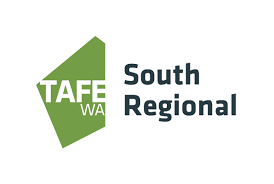
It is highly recommended that students select one or both of the following industry related subjects in conjunction with this certificate:
G1/G2AET, GTAET – Automotive Engineering Technology General
G1/G2MDTM, GTMDTM – Materials Design and Technology (Metals) GeneralOVERVIEW
The Beauty certificate encompasses the skills and applications of many of the trades and professions in the beauty industry.
Help people feel good about themselves. The beauty and complementary therapies field offers numerous opportunities for a rewarding career. Learn with industry professionals and get the skills and knowledge to consult with clients. Analyse faces and skin, and artfully demonstrate how to apply makeup products to meet individual client needs.
SHB20121 Certificate II in Retail Cosmetics is delivered under profile by South Regional TAFE – RTO Code 52790 – over one year. Students will attend TAFE one day per week and workplace learning in week blocks each term.

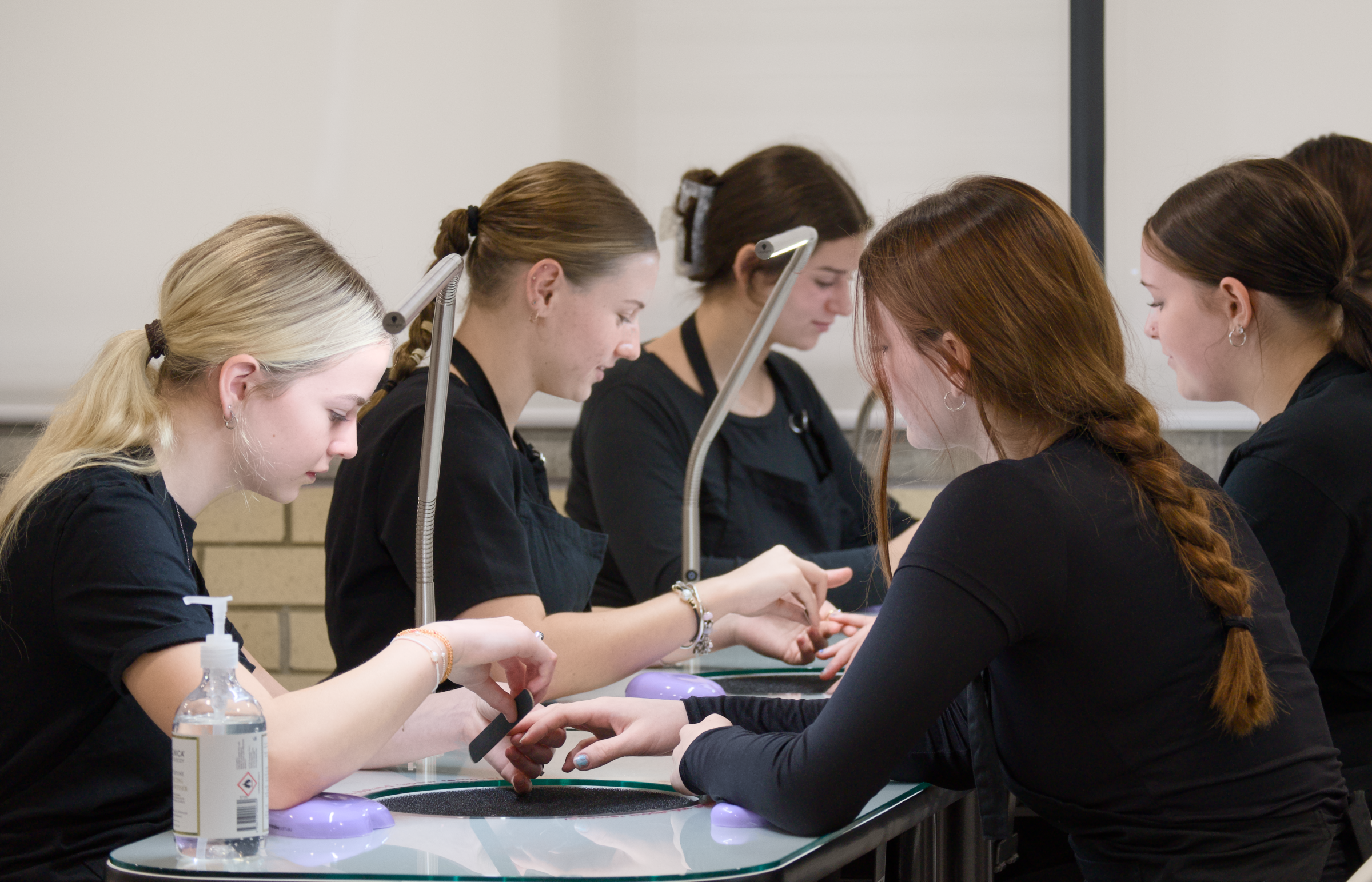
OVERVIEW
The Building and Construction certificate encompasses the skills and applications of many of the trades and professions in the construction industry. There is a strong focus on employability skills and preparing students for a wide range of apprenticeship and traineeship opportunities within the construction field.
Learn how to use manual and power tools, interpret plans, calculate required materials and work safely at heights. Be ready with the required technical and interpersonal skills to further your training in the Construction industry.
52893WA Certificate II in Building and Construction is delivered under profile by South Regional TAFE – RTO Code 52790 – over two years. Students will attend TAFE one day per week. It is a pre-apprenticeship course which requires 110 hours of workplace learning in the construction industry.

It is highly recommended that students select one or both of the following industry related subjects in conjunction with this certificate:
G1/G2BCN, GTBCN – Building and Construction General
G1/G2MDTW, GTMDTW – Materials Design and Technology (Wood) General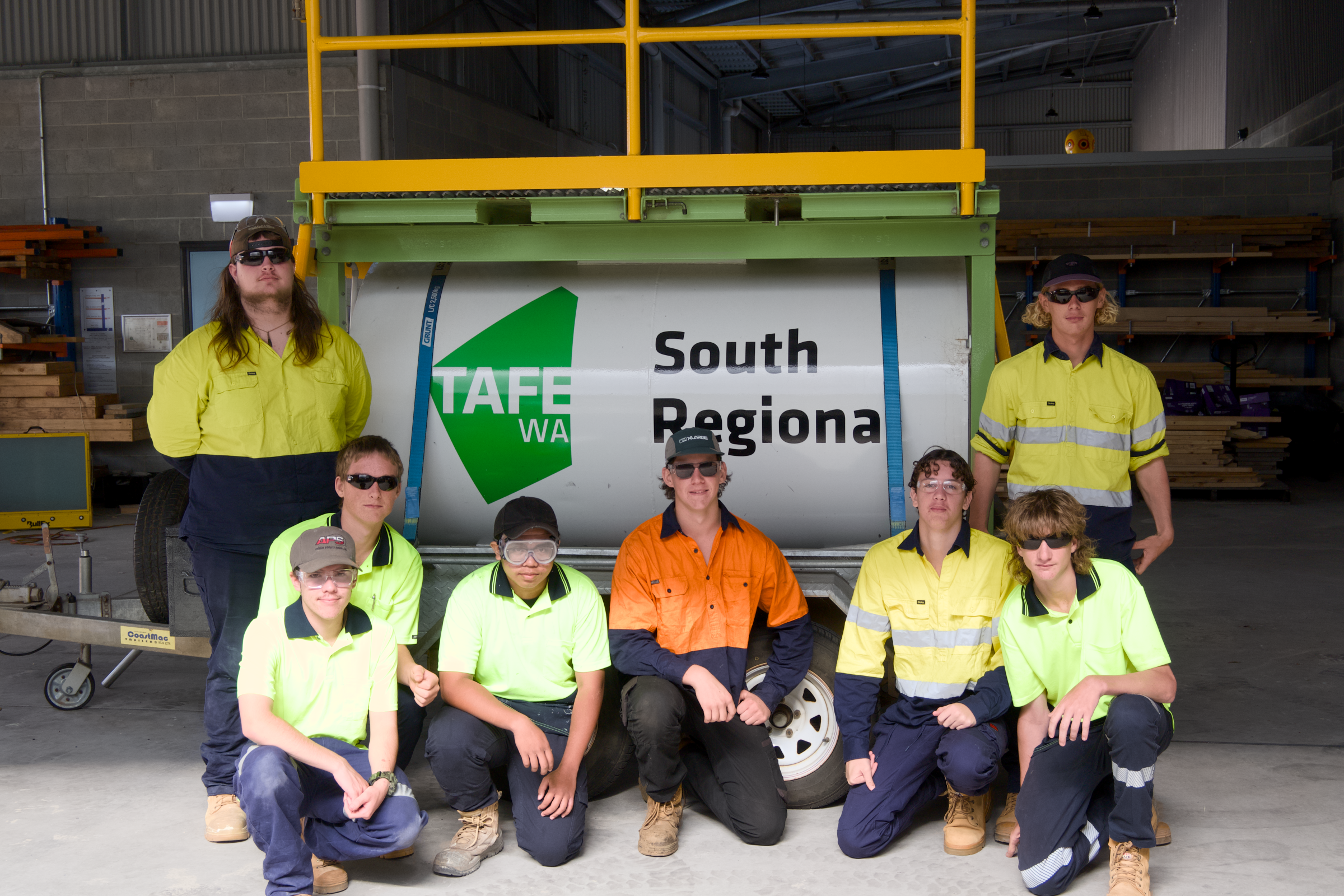
OVERVIEW
The Business certificate encompasses the skills and applications of many of the professions in the business administration. There is a strong focus on employability skills and preparing students for a wide range of traineeship and employment opportunities within the business administration field.
This is an entry-level course designed to provide learners with the opportunity to complete common core units that appear across multiple employment pathways including: Business Equipment and Software, Customer Service, Finance and Bookkeeping, Information Communication Technology (ICT), Time and Task Management, Wellbeing, Working Effectively in a Team Environment, Work Health and Safety and Workplace Communication.
BSB20120 Certificate II in Workplace Skills or BSB30120 Certificate III in Business is delivered under an auspice agreement with Skills Strategy International – RTO Code 2401 – over two years. Students will attend classes at school throughout the week and workplace learning in week blocks each term.

Students wishing to pursue the Certificate III pathway need to demonstrate the following skills: autonomous/independent worker, high level business and ICT skills, excellent time management skills, excellent organisational skills, strong verbal and written communication skills and an excellent attendance rate.
It is highly recommended that students select one or both of the following industry related subjects in conjunction with this certificate:
G1/G2AIT, GTAIT – Applied Information Technology General
G1/G2BME, GTBME – Business Management and Enterprise General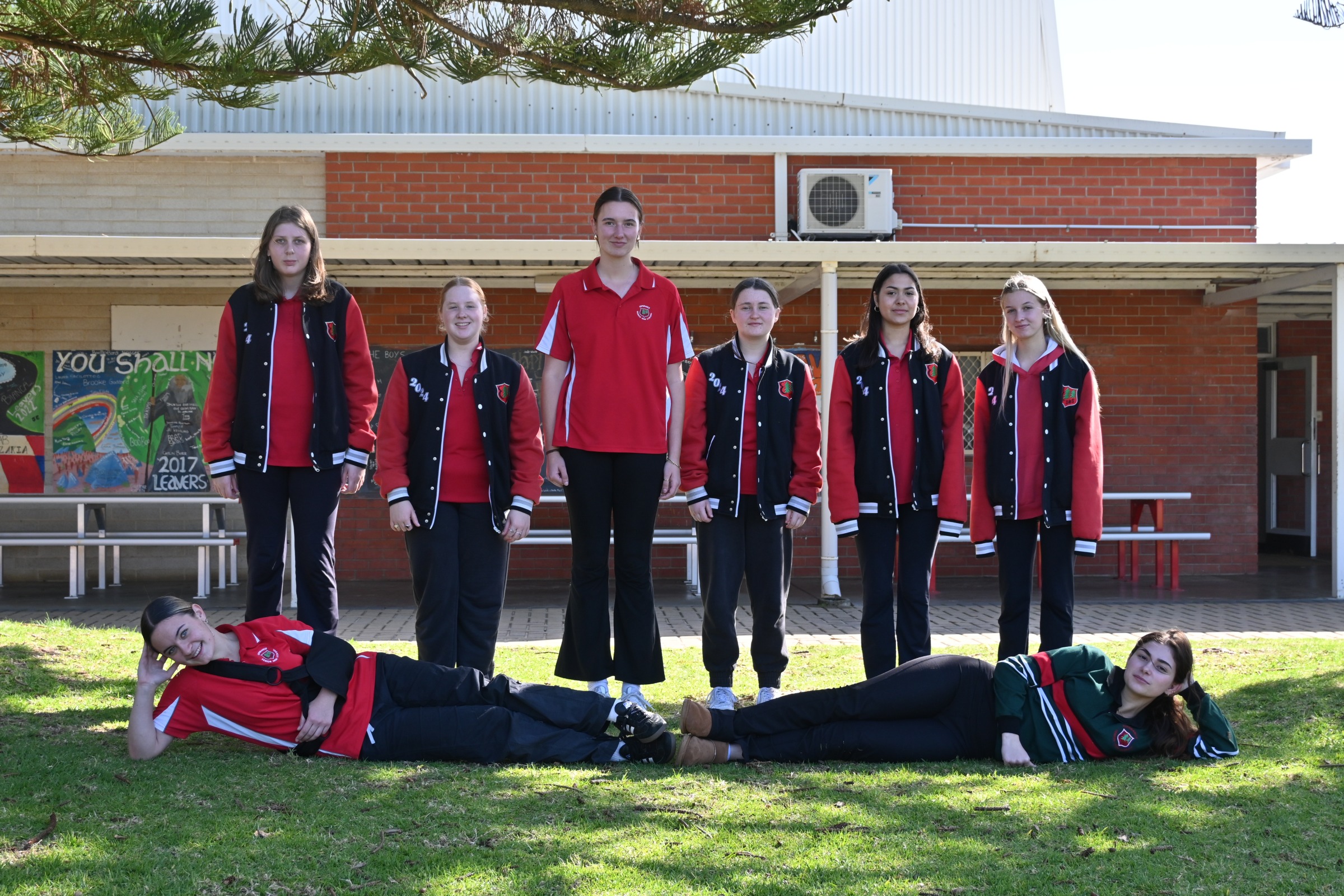
OVERVIEW
The Community Services certificate encompasses the skills and applications of many of the professions in the community services industry. This course offers insights into early childhood education and care, equipping you with the skills to support individual and communities effectively. You will develop skills in communication, administration support, networking and group support.
CHC22120 Certificate II in Community Services is delivered under profile by South Regional TAFE – RTO Code 52790 – over one year. Students will attend TAFE one day per week and workplace learning in week blocks each term.

It is highly recommended that students select the following industry related subject in conjunction with this certificate:
G1/G2CFC, GTCFC – Children, Family and Community GeneralOVERVIEW
The Conservation certificate encompasses the skills and applications of many of the trades and professions in the conservation and ecosystem management area.
If you love the idea of helping to save Australia’s beautiful and unique lands, waters, flora and fauna – this is the course for you! This program offers selected students the opportunity to engage in culturally grounded, hands-on land and conservation activities, delivered in partnership with Tjaltjraak and other local organisations.
The 2026 course is currently being developed and more information will be available later in the year. Students will attend TAFE one day per week at Tjaltjraak and workplace learning in week blocks each term.
It is highly recommended that students select one or both of the following industry related subjects in conjunction with this certificate:
Science in Practice
Outdoor EducationOVERVIEW
The Electrical certificate is currently being planned for 2026 delivery. More information will be available later in the year.
OVERVIEW
The Engineering certificate is designed to develop trade-like skills and offers an introduction to essential engineering practices. Students explore the world of welding, machining, and utilising engineering tools and equipment to create and modify objects. With a focus on safe practices and simulated work environments, this qualification is ideal for those seeking exposure to the engineering industry. Students gain valuable knowledge and skills that enhance their employability in engineering or related workplaces.
MEM20422 Certificate II in Engineering Pathways is delivered under an auspice agreement with Australian Institute of Education and Training (AIET) – RTO Code 121314 – over two years. Students will attend classes at school throughout the week and workplace learning in week blocks each term.
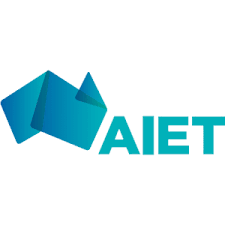
It is highly recommended that students select one or both of the following industry related subjects in conjunction with this certificate:
G1/G2EST, GTEST – Engineering Studies General
G1/G2MDTM, GTMDTM – Materials Design and Technology (Metals) General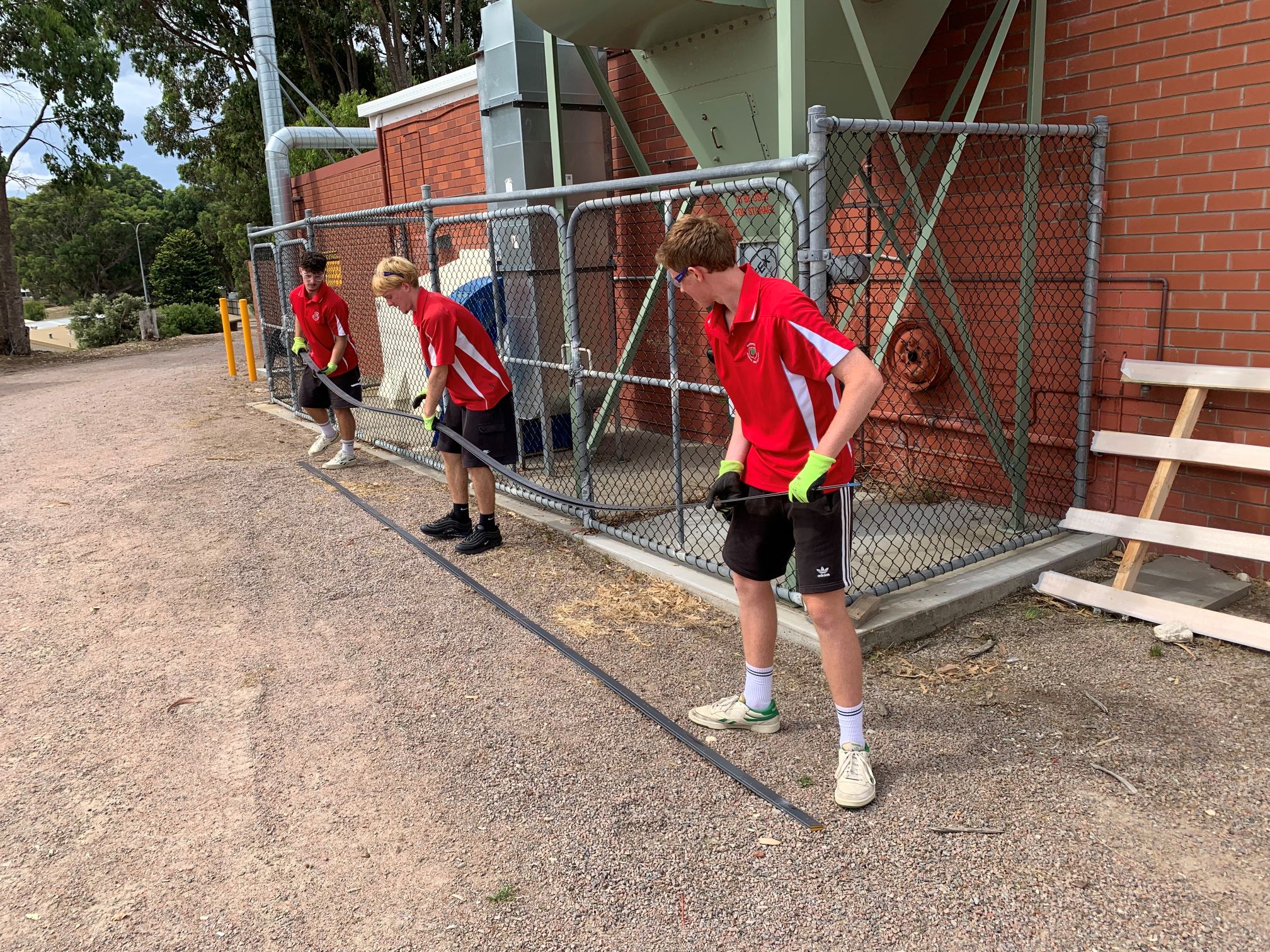
OVERVIEW
The Hairdressing certificate encompasses the skills and applications of many of the trades and professions in the Hairdressing industry.
All about hair! This preparatory qualification ensures you will gain basic skills and knowledge used in hairdressing salons including shampooing, maintaining hairdressing tools, scheduling appointments, merchandising and workplace health and safety.
You will be under direct supervision and guidance of hairdressers who manage the client service. The combined skills and knowledge do not provide for a job outcome as a hairdresser; however, the qualification is intended to prepare you for further training.
SHB20216 Certificate II in Salon Assistant is delivered under profile by South Regional TAFE – RTO Code 52790 – over one year. Students will attend TAFE one day per week and workplace learning in week blocks each term.

OVERVIEW
The Hospitality certificate is currently being planned for 2026.
Are you interested in gaining practical skills in food and beverage preparation to start your career in the Hospitality and Tourism Industry? Get job ready and enjoy these career opportunities that will take you anywhere in the world! Find your pathway into the various settings of restaurants, hotels/motels, cafes and coffee shops.
Chef’s uniform will be provided, you only need to supply the black pants and enclosed black footwear.
SIT20322 Certificate II in Hospitality is new to the school – additional information will be available later in the year. Students will attend classes at school throughout the week and workplace learning in week blocks each term.
It is highly recommended that students select the following industry related subject in conjunction with this certificate:
G1/G2FST, GTFST – Food Science Technology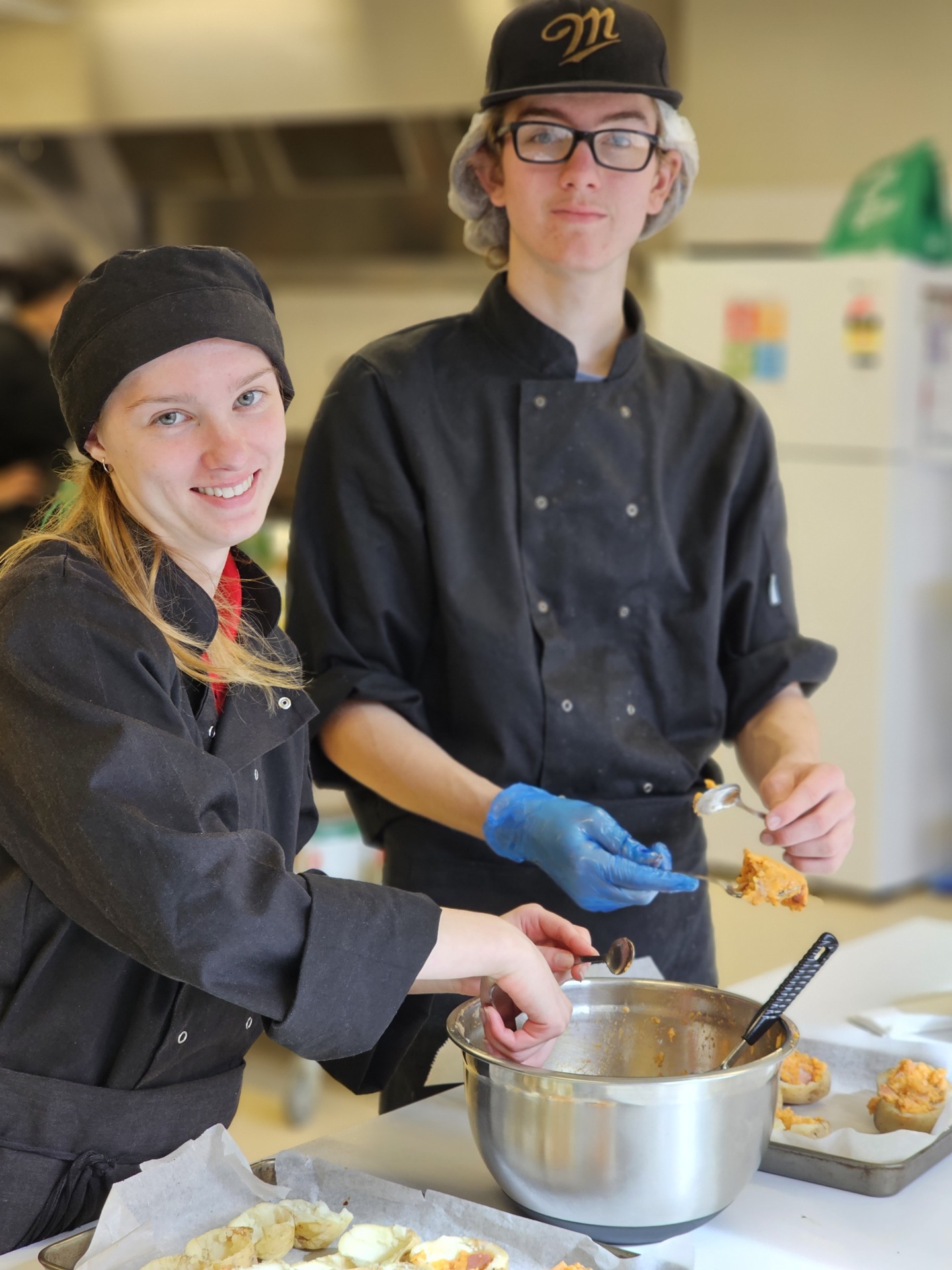
OVERVIEW
The Music certificate encompasses the skills and applications of many of the professions in the music industry. It is designed for those students who have an interest in music, are capable of playing an instrument AMEB Grade 1 or higher and are keen to develop skills for the contemporary music industry.
CUA20620 Certificate II in Music and CUA30820 Certificate III in Music are delivered under an auspice agreement with College of Sound and Music Production (COSAMP) – RTO Code 41549 – over two years. Students will attend classes at school throughout the week.
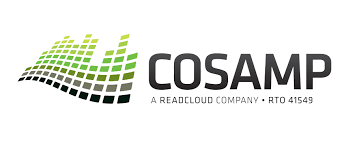
Students wishing to pursue the Certificate III pathway need to have an interest in music, are capable of playing an instrument at AMEB Grade 2 or higher, and are keen to develop skills for the contemporary music industry. The Certificate III in Music allows for specialisations in performance, or a more general interest in music and the creative arts industries.
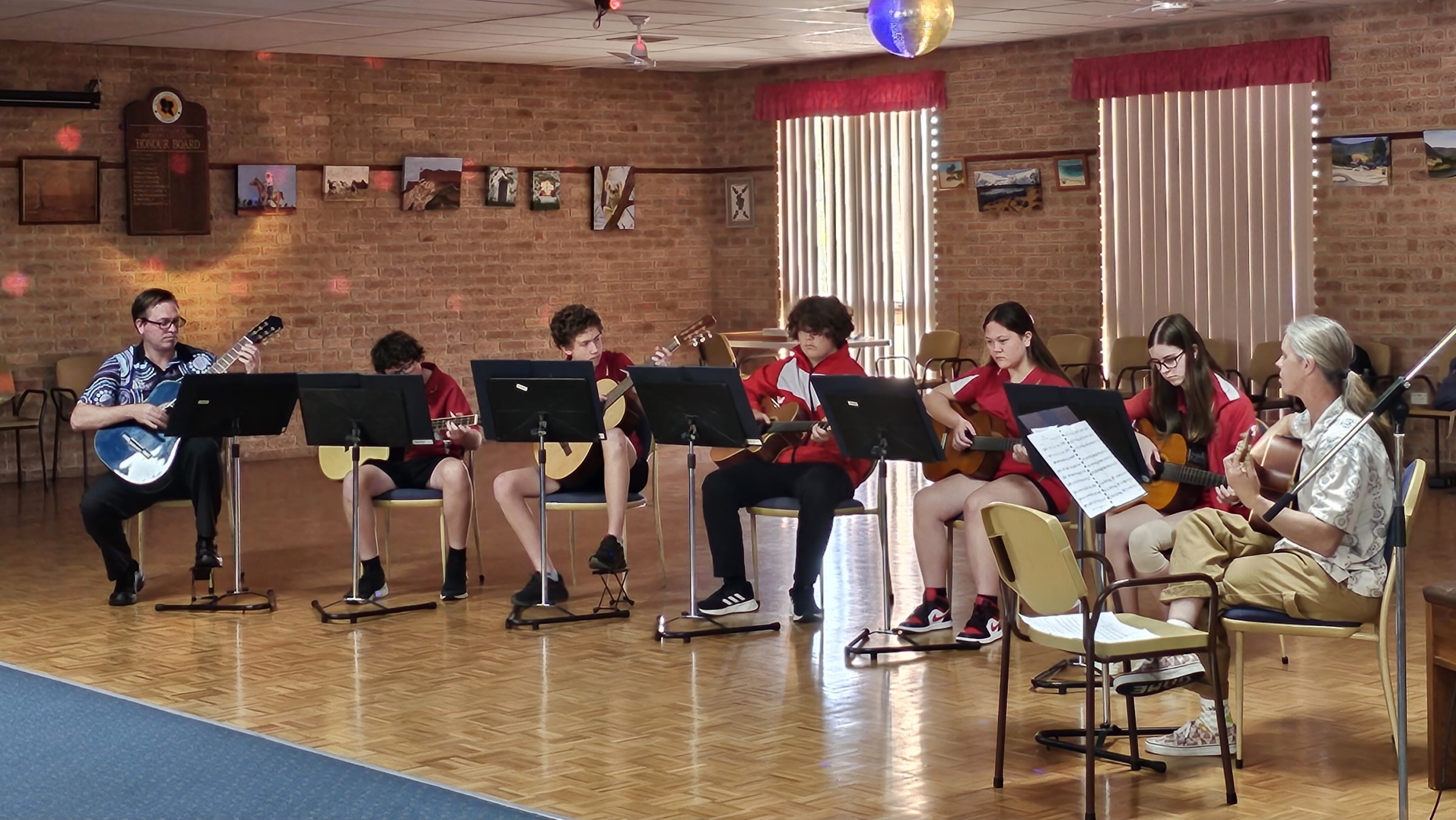
OVERVIEW
The Nursing certificate encompasses the skills and applications of the professions in the nursing industry.
Get a solid understanding of the human body and health. Learn about anatomy, physiology, microbiology, and medical terminology. Gain extra skills in applied mathematics, physics and chemistry and the academic skills required for ongoing study.
Completion of this course will support your interest of further studies in Enrolled or Registered Nursing.
52895WA Certificate IV in Preparation for Health and Nursing Studies is delivered under profile by South Regional TAFE – RTO Code 52790 – over two years. Students will attend TAFE one day per week.

It is highly recommended that students select one or both of the following industry related subjects in conjunction with this certificate:
G1/G2HEA, GTHEA – Health Studies General
AI/A2MDTW, ATMDTW – Human Biology ATAR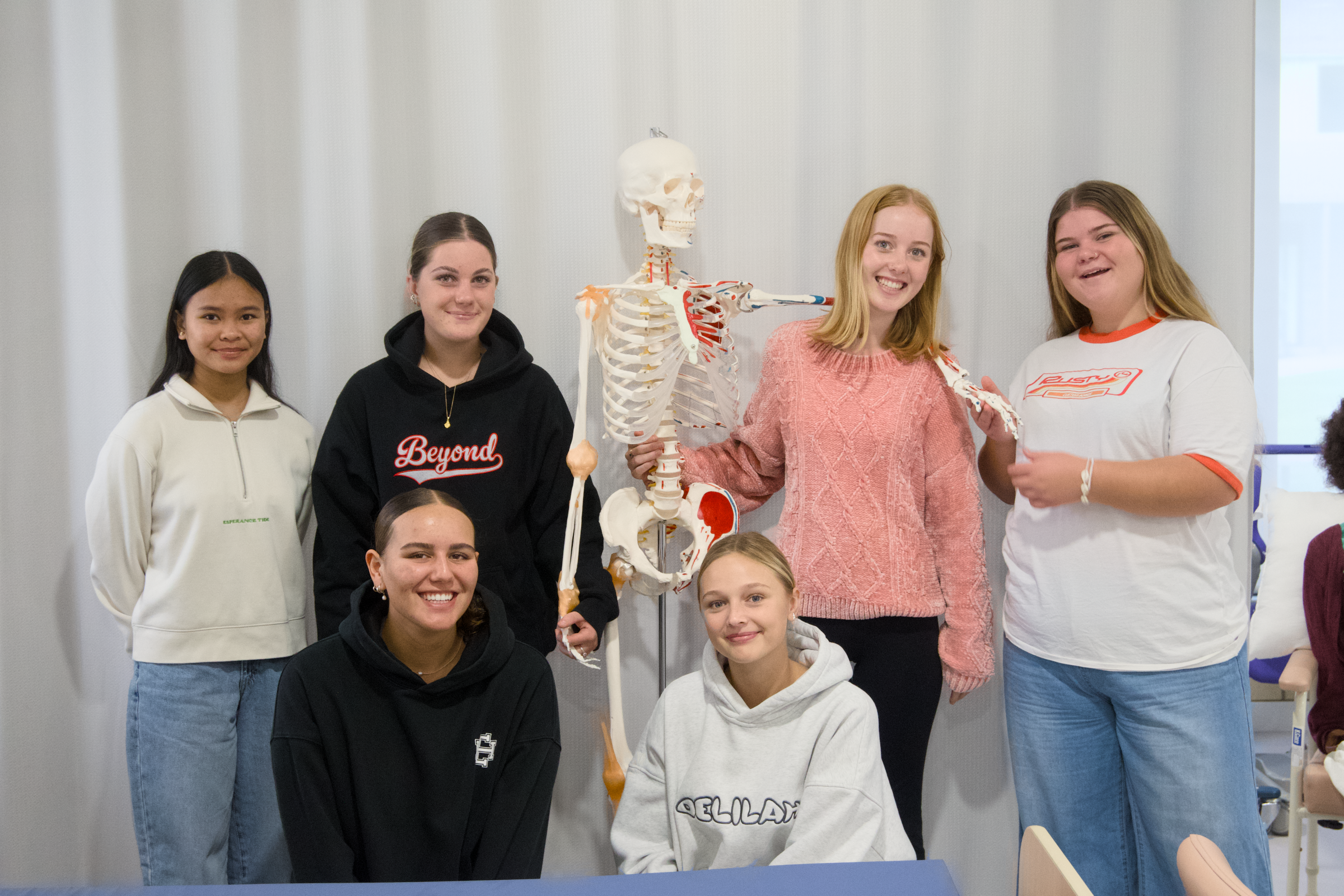
OVERVIEW
The Agriculture certificate encompasses the skills and applications of many of the trades and professions in the agriculture industry. Get your hands dirty learning about crop production, livestock care, and farm management. Whether you dream of running a farm or innovating agricultural practices, start seeding your future here.
This is an entry-level course designed to provide learners with the opportunity to complete common core units that appear across multiple agriculture trade pathways including: Livestock, Crop Management and Work Health and Safety.
AHC20116 Certificate II in Agriculture is delivered under profile by South Regional TAFE – RTO Code 52790 – over two years. Students will undertake their certificate at the school farm one day per week and workplace learning in week blocks each term.

Students will be enrolled in the following school subjects:
- Animal Production Systems
- Cadet Level One
- English
- Mathematics
- Materials Design and Technology (Metals)
- Workplace Learning
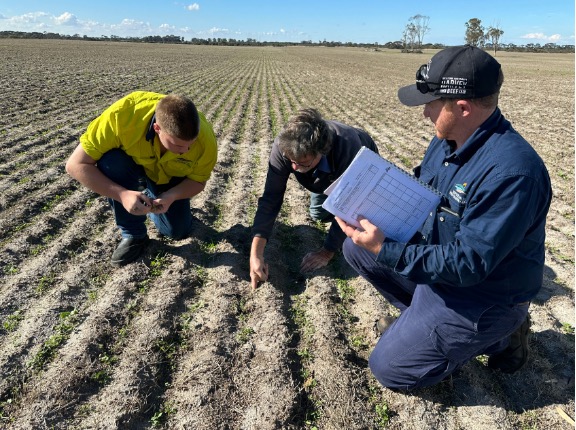
Booklists & Subject Costs
At ESHS, we strive for transparency and accessibility around fees and charges. In accordance with the Department of Education Contributions, Charges and Fees Policy, new charges and contributions will be available two months prior to the commencement of the new school year. The Esperance SHS School Board has endorsed the schedule of Contributions and Charges for 2025.
For specific course information
For enrolled students: use your school username and password to log on to Connect.
For parents and guardians of enrolled students: parents with an email account will automatically be registered for Connect. You will receive a username and password soon after enrolment. When you log on to Connect, you will be able to see information about your child / children, including course information, attendance information, course results and school reports.
